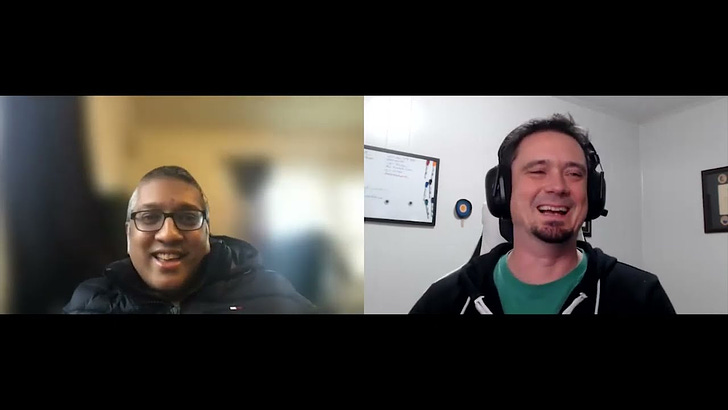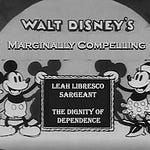I’ve got to put a content warning on this one. The language is maybe PG-13 but the phrase “bullshit” makes a pointed and repeated appearance simply because it is the best phrase to describe a lot of the things we are talking about.
I’ve known Razib Kahn for a damn long time. Twitter archeology isn’t very good since every smart person has long since deleted their old stuff, but we’ve been glancing off each other for close to a decade.
I remember being excited for him when he landed a gig with the New York times only to become outraged when they dropped him, not for anything that he had written, but because he had written for an online publication that hosted other writers who wrote “bad things”. This was the first time that I recall a cancellation-by-proxy, where someone is fired and cancelled not for what they said but for their proximity to the “bad people”.
Razib now writes on Substack at Unsupervised Learning, an incredible publication on population genetics. He recently wrote a passionate defense of the recently deceased biologist E.O. Wilson. Wilson was massively accomplished and influential entomologist and evolutionary biologist who, upon his recent passing, was subject to a Scientific American article that can only be described as a hit piece on the recently departed.
Razib, the decent man that he is, took offense at this, talked within the back-channels of geneticists and evolutionary biologists, and decided that someone had to write a rebuttal. He took it on himself to coordinate this effort and, when Scientific American refused to publish it, he published it on his Substack.
What followed absolutely turned my stomach. I watched in fury as several of the people who signed Razib’s rebuttal backtracked in the following days, ganging up on him for these strange imagined crimes.
Just as Razib was my first introduction to “cancellation by proxy”, he became my first introduction to “cancellation by proxy by proxy”. I’ve never seen Razib exhibit any prejudice, show any antipathy to anyone (except for those monsters who murdered the Bangladeshi atheists), and yet people were denouncing others for associating with him because they say he associated with other bad people. This two degree cancellation is new and novel and, if that is the direction we are headed, we are in for a very bad time in the next decade.
Razib is my friend. He is tenacious and loyal, but he is realistic. He holds no grudges against the people who stabbed him in the back, recognizing that we all live in a social reality and, for some people, that reality means they have to choose between what they believe (or what they wish they believed) and maintaining their professional and personal relationships.
Even as I write this, I feel bad for putting this is a negative light. I write as if I have some distain for people who backtrack when they discover that taking an ethical stand has social consequences because I genuinely hold that distain. But when I talk to Razib about it, he defends the backstabbers. He reminds me that these people are real people living in a real world and it is unreasonable to demand that they sabotage their own careers, their familial and professional relationships, in support of an internet friend.
This is hard for me. This kind of betrayal makes me furious. But he’s right. It’s better to say to these friends, “I understand, you did what you have to do” and maintain those relationships in spite of the betrayal. In Biblical terms, this is the heaping of burning coals onto their heads.
The grace Razib shows in all of this is the envy of most Christians I know. It is like he is granting me permission to not be furious. Razib inspires me to show more grace than I’m inclined to show.
I love that. This is the “love the sinner, hate the sin” attitude that Razib exemplifies.
The next 10 years are going to be hard for people who feel like they need to speak up about injustices to the condemnation of their peers. People are going to have to make choices about what really matters to them and some are going to see the scales for some friends tip in a direction that we may not like. We will need to develop an art of relationship that is able to build connections and friendships, knowing that some of these will betray us. We’ll need to learn who those are and not hate them for their betrayal while not trusting them with our thoughts. This is not something I was ever taught in my youth, but I think it will be a vital skill.
Yes, this is very Rhett Butler, but the ability to adapt to the changing times will give us all a great deal more freedom as we learn how to differentiate between being friendly and being friends.
Disney Shorts: Pluto’s Housewarming (1947)
This is one of the most beautiful Pluto shorts. There is no narration. In fact, there are no words at all in this short, just the emotive presence of the three characters: Pluto, Butch, and the turtle character. This is the platonic ideal how to write a superb cinematic short.
Pluto is moving his bone collection from his old run-down doghouse into a new and beautiful one. Upon his move, he must contend with a turtle who takes over his home. Upon resolving that situation, Pluto finds that another larger dog has taken his house. The remainder of the short is the conflict that allies Pluto and the turtle against the invasive bulldog.
The entire short is a testament to the emotive nature of animation and the ability to tell a story with visuals alone. We get a full-featured narrative without a single word spoken, based only on the facial expressions and the often exaggerated actions of the characters. This is an animated vaudeville performance and it’s a delight.













